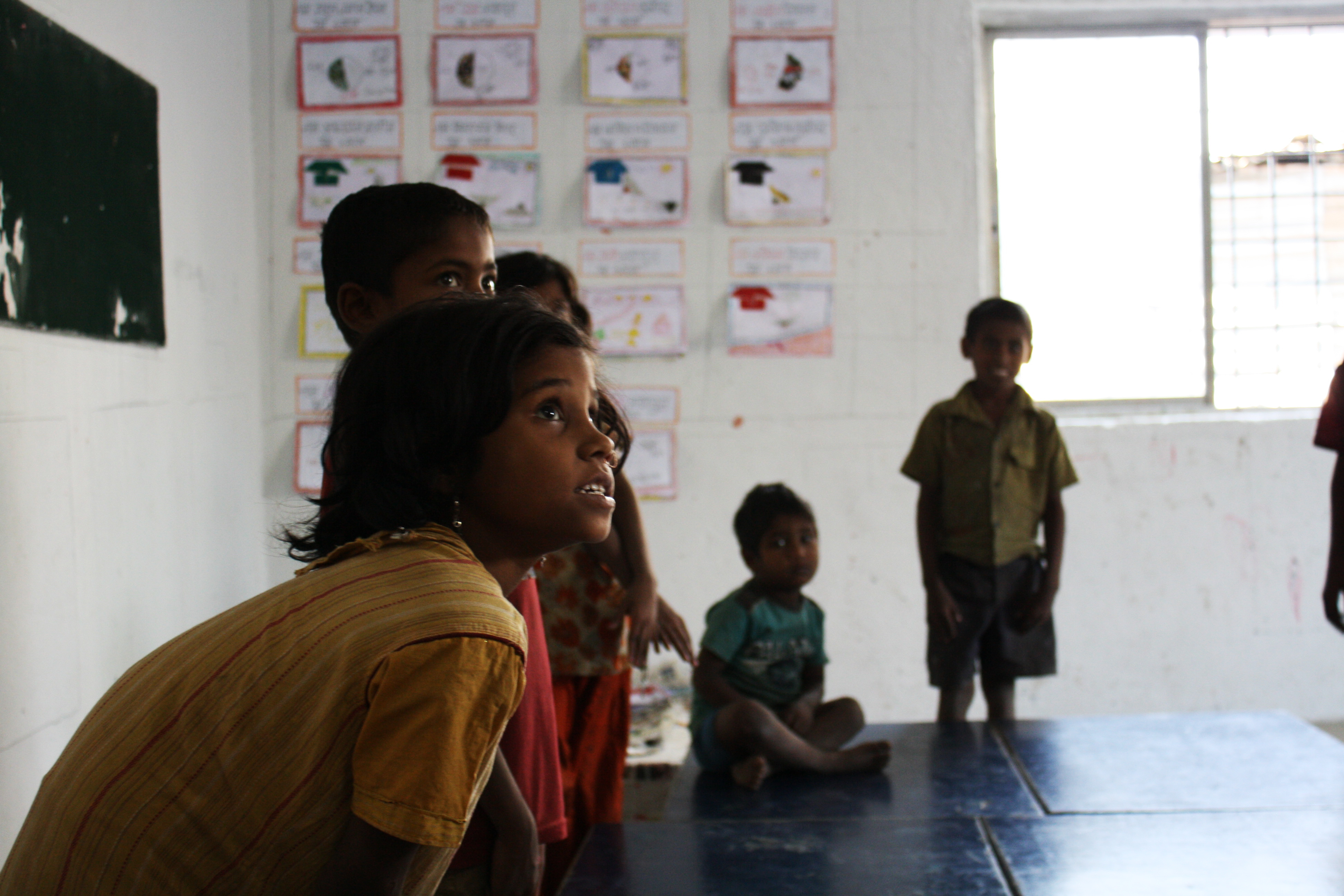Learning Off the Grid
Mumbai, India
2011-12
In 2011, we collaborated with fellow colleague Annie Kurtin and flew to Mumbai, India to host a workshop entitled Learning off the Grid – a culmination of research focusing on the intersection of design and alternative education in and around Mumbai. Our research resulted in a two-part inaugural event hosted by Columbia University at Studio X: Mumbai. The first event was an evening lecture including experts from the fields of architecture and education followed by a full-day design workshop in which groups of students and architects re-envisioned education in India today. Due to the problems associated with marginalized sectors of the population, inadequacies in access to education are often times ignored. In response, a range of grass roots programs in Mumbai is directly addressing the issue of education as a means of combating poverty. This study explored the role of architecture within the educational sector, particularly in response to the extreme needs of a growing population.
The importance of design in alternative education is often neglected since educational facilities are typically rudimentary and utilitarian. Through meetings with activists, educators, students and architects, including site visits to a diversity of school facilities, Learning off the Grid asked the following questions: How can architecture provide new outlets for education not currently provided by government-funded schools? What role should traditional and contemporary building crafts play in the design of schools? Do smaller interventions at the scale of the desk or blackboard have the potential to make an impact?
While in Mumbai, numerous educational programs were studied and documented, including organizations such as Mobile Crèches, Ashta no Kai, Magic Bus, Teach for India, URBZ, PUKAR and Akanksha that are continually working with migrant, low-income and rural communities to educate children so they may excel further in life. These organizations often serve as supplementary models to standardized government-funded schools by promoting the welfare of individual children within the broader educational landscape. Additionally, various architectural firms working in the field of education in Mumbai were interviewed, including Studio Mumbai, Architecture Brio and DCOOP. The interest of Learning off the Gridlies in the relationship between design and education, where spatial function and form serve to enhance and engage a given curriculum or teaching methodology.
The first event – an evening panel discussion on Friday, January 21st, brought together several of the organizations including: Vrushali Naik and Ava Shapiro of Mobile Crèches, an NGO targeting the children of migrant families working on construction sites; Armene Modi the founder of Ashta no Kai who works directly with young women studying in rural villages near Pune; Matias Echanove and Himanshu S. of URBZ who shared one of their projects – a shelter in Dharavi which functions as a multi-purpose workshop and art gallery for the local community; and Robert Verijit of the design firm Architecture Brio which is currently working on the second phase of the Magic Bus Campus that comprises a dormitory and outdoor play pavilion for marginalized urban children. The presentations were followed by a roundtable discussion in which speakers took questions and discussed the roles of not only their own organizations, but the responsibility of government and strategies for implementation.
The following day Studio X: Mumbai transformed into a workshop space where architecture students representing three local schools along with practicing architects and teachers spent the day generating curricula and design proposals based upon three hypothetical school briefs with the purpose of re-envisioning education design in Mumbai. The charrette was organized into two sessions : the morning was spent discussing the larger issues and organizational structure for the school while the afternoon session focused on specific design interventions for these programs. Design proposals ranged in scale from an entire village network to a modular prototype for a child’s desk. The day concluded with a final review and discussion of the work generated in both sessions. The workshop questioned the role of the architect in relation to education as well as the different scales of impact and implementation.
The travel and research for this project was funded through the William F. Kinne Travel Grant from Columbia University.




